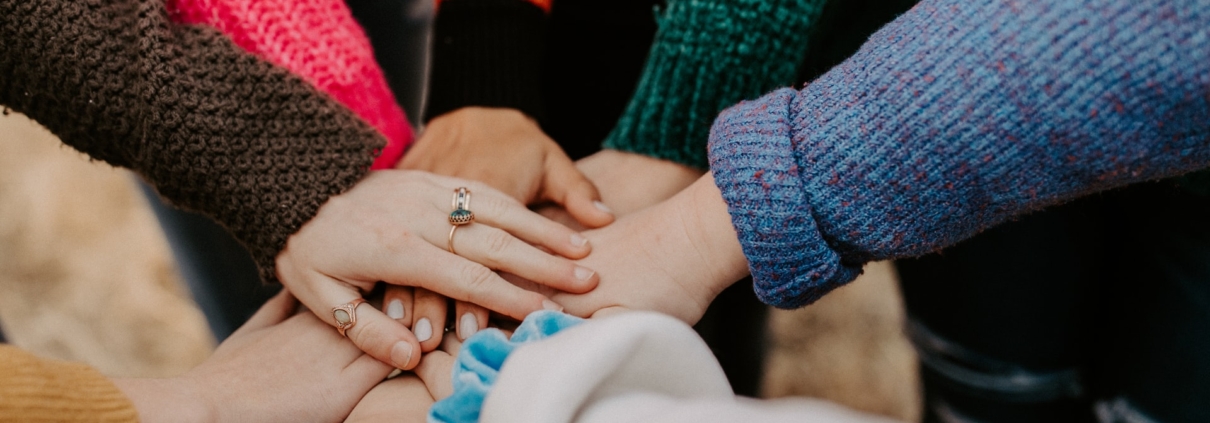Is collective impact the future for family hubs? How a refugee crisis strengthened a community’s resilience

Latest posts
Share:
Cities and towns across the UK are experiencing diverse and dynamic shocks, from the cost of living to the mental health of young people in school. Communities are seeking opportunities to make autonomous decisions to respond to their current needs while becoming more resilient in the face of future challenges.
Levelling Up and the Introduction of Family Hubs across the UK can provide a solid foundation for communities to engage with their issues differently. From our experience, communities and teams that have invested in collective and adaptive approaches have been able to address their acute needs and increase their resilience to future systemic shocks.
Let’s explore a live example from a current Wasafiri-supported initiative (based on an interview with Mei Lim, Director of the Reach Children’s Hub).
Over the last year and a half, Wasafiri has been supporting the Reach Children’s Hub, through the Feltham Convening Partnership (a community initiative in West London), to develop systems-based approaches to deliver substantial, sustainable improvements to the lives of children, young people and families in the Feltham community.
The shock to the Feltham community
In early 2022, a hotel in Feltham (a town in West London) was repurposed to house over 460 asylum seekers, mostly families. These are people fleeing religious, political, criminal, and other forms of persecution in their home countries, including El Salvador, Iran, Iraq, Kuwait, Pakistan and many more.
These families were forced from their homes, with most of them having very little to no knowledge of the UK or English, and with complex physical and emotional needs. The scale, abruptness and dynamic nature of the situation put huge pressure on the local health, education, and governance systems.
From a community standpoint, there was no strategy, no plan, no clarity, and it became apparent that there were multiple needs that simply weren’t being met. The local authority education team had a responsibility to place children in school, the Reach Children’s Hub and Tudor Park Education Trust responded.
The role of collective and adaptive approaches
The Children’s Hub had never worked with asylum seekers. However, the nature of the systems work that they had been doing to improve children’s outcomes provided them and the supporting community with the relationships, access to resources and tools to be able to lead and coordinate a response. Key components were:
- Understanding of the wider system that supports children. The large amounts of cross-sector analysis that had been done meant the Children’s Hub had a holistic view of the system supporting children and families in the area. They were able to mobilise the right people, go to the right sources to get the information. Importantly, it also provided them with the mindset that there are always wider systemic issues at play, and that small changes can create significant shifts.
- Functioning multi-disciplinary formal and informal structures, such as networks, working groups, and a steering committee. The existing relationships, information flows, and cross-sector understanding allowed the community to absorb the impact of the situation. Mei stated that, ‘having everything already in place, it felt like we were able to switch it on when we needed to.’
- Existing sense of solidarity and practised adaptation. The diverse group of stakeholders already had a shared sense of direction and togetherness from their work trying to influence opportunities for children. They were also already accustomed to the messy and ambiguous nature of multi-disciplinary work. It’s hard, and clunky at times. However, their shared purpose and history of working together gave them a belief (even if just a flicker) that this seemingly insurmountable task could be done, together.
- Genuine, trusted personal relationships across all the sectors and with the community members. The spirit of their collective action is that every connection is just about building a relationship, showing that they are passionate about the community and that relationships are not just transactional. These personal, cross-institutional and community relationships have allowed each institution to flex in ways they normally wouldn’t, and thus the whole system can make room for the surge of atypical needs.
The impact and outcome
"This situation has been a real indicator of the relationships we have built over time. It [the collective approach] made the multi-stakeholder process needed to respond, much easier. It seems like this difficult situation has made everything stronger. Overall, the systems work has helped create a more resilient community."
Mei Lim, Director of the Reach Children’s Hub
Below are some of the immediate impacts.
- Sharing of information has been possible. There is improved momentum and legitimacy for sharing information. There is an overall sentiment, that if you don’t share it, everyone is worse off. This has been further supported by joined-up working across services, for example, the Children’s Hub coordinated a daily Stay & Play session at the hotel with the Children’s Centres Early Years Practitioners. It was the first time the two teams had come together to deliver an intervention. They planned sessions together, coordinated resources and held reflective discussions every fortnight.
- Clear direction and priorities that help the asylum families and supporting institutions. The Children’s Hub was able to establish two clear priorities. One, get the children into schools as quickly as possible and two, put immediate support in place in the hotel. Even though asylum seekers have a right to access statutory services such as schools and GPs, there are no separate pathways to enable this access. They must follow complicated processes that are made even more challenging when you don’t speak the language and have no knowledge of the system. Due to existing relationships, Hub members were able to act as the go-between for families, the hotel management team, Hounslow’s Admissions team and local schools, to support the placement of children. There was also an acute situation to meet the complex needs of all the people living in the hotel, including providing them with clothes, suitable food, toiletries, and access to perinatal care.
- Within 48 hours all the children were able to attend nursery. Asylum-seekers are entitled to access 2 and 3-year-old funding for Nursery places, but this wasn’t something that had been communicated to the families in the hotel and the Local Authority claimed they did not have the capacity to support any applications. The Hub’s Early Education Lead has developed a network of Early Years practitioners across 13 local settings and, by calling on these relationships, was able to place all eligible children in an appropriate setting within 48 hours.
- Mental health support was identified as an immediate need. Despite many families expressing relief at being provided with accommodation, arriving at the hotel was extremely stressful and traumatising. Families were sharing rooms, sometimes with 5 or 6 children; they had no control over basic aspects of their lives (laundry, food); access to communal spaces was limited with nowhere for children to play or interact; the quality of food was poor, and ultimately, the hotel staff were overwhelmed as more people arrived each day. The whole process of seeking asylum is dehumanising and undignifying. In response, the Children’s Hub decided to organise opportunities for people to ‘escape’ the monotony and uncertainty of their situation and experience moments of joy; concerts with a range of West End musicians; half-day workshops with Rocksteady Music School; clowning and theatre workshops with the Flying Seagull Project and Good Chance theatre, and ongoing weekly social groups at a local community centre. Hot lunches (healthy & cooked fresh) were delivered daily for 100+ children for 1 term (period when the children were being placed in schools).
- Sense of solidarity has grown immensely since responding to the situation. All the relationships have been strengthened through the experience and this sets them up even better for future challenges. This was a cross-sector, collective response to the challenge and the increased sense of solidarity can be seen through the:
- Ongoing collaboration between schools and early years settings now that all children have been placed.
- Increased contact between Reach Children’s Hub and the Local Authority in terms of providing ongoing support for the refugee families, in addition to the wider support for families living in Feltham.
- Attendance of refugee families at community events, most notably at the Hounslow Citizens Assembly in April 2020 in partnership with Citizens UK. One refugee parent commented that they felt like a part of the community and noted the difference in community agency between this community and the one they had fled.
The Feltham community’s experience highlights the larger systemic problems with the UK’s asylum-seeking processes and policies. However, it also provides hope that we can do right by people forced to flee their homes from horrific circumstances and demonstrates the power of communities working and adapting together to increase the effectiveness of localised systems.
Contact Scott Hinkle at scott@wasafirihub.com for more information about collective and adaptive approaches to building more resilient communities.
Photo by Hannah Busing on Unsplash








